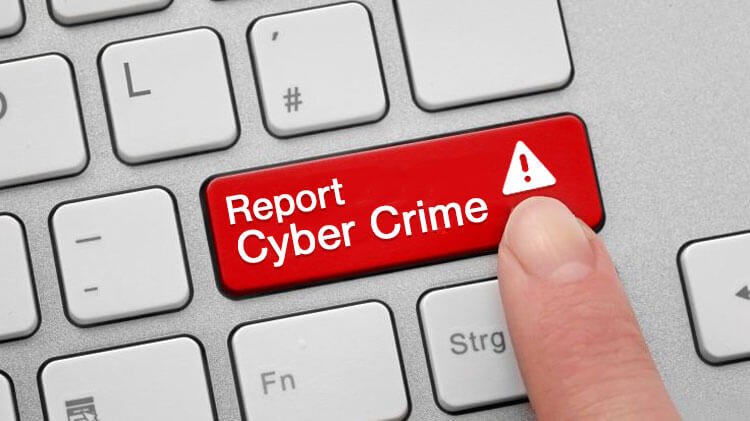In an era where digital threats lurk behind every click, cyber crime reporting has become a critical skill for Americans navigating the online world. From phishing scams that drain bank accounts to ransomware attacks that cripple businesses, cyber crime is a growing menace that affects millions. The FBI’s 2023 Internet Crime Report noted a staggering $12.5 billion in losses due to cyber crime in the U.S., underscoring the urgency of understanding how to report these incidents effectively. This blog dives into the intricacies of reporting cyber crime, offering a roadmap for Americans to protect themselves and their communities. With a conversational yet authoritative tone, we’ll explore why reporting matters, how to do it, and the challenges you might face, all while weaving in insights from experts and real-world discussions, including those from Reddit communities.
Why Reporting Cyber Crime Matters
Cyber crime is no longer a niche issue confined to tech enthusiasts; it’s a mainstream threat impacting everyday Americans. Whether it’s identity theft, online fraud, or hacking, these crimes disrupt lives and erode trust in digital systems. The FBI reported over 880,000 cyber crime complaints in 2023, a figure that highlights the sheer volume of incidents. However, many victims hesitate to report due to embarrassment, confusion, or a belief that nothing can be done. Consequently, underreporting allows criminals to operate with impunity, perpetuating a cycle of victimization.
Reporting cyber crime serves multiple purposes. First, it helps law enforcement track trends and allocate resources effectively. For instance, reports of phishing scams can prompt warnings to the public, potentially preventing further victims. Additionally, reporting contributes to data that shapes cybersecurity policies and strengthens national defenses against cyber threats. As one Reddit user in the r/cybersecurity community noted, “Reporting even small incidents can help build a bigger picture of what’s out there. It’s like crowdsourcing intel against criminals.”
Empowering Victims
Beyond aiding law enforcement, reporting empowers victims by giving them a sense of agency. When you report a cyber crime, you’re not just a statistic; you’re an active participant in the fight against digital threats. Moreover, reporting can sometimes lead to recovery of stolen funds or assets, especially in cases of financial fraud. For example, the FBI’s Internet Crime Complaint Center (IC3) has facilitated recoveries in numerous cases, though success depends on timely reporting. Therefore, understanding the process is crucial for every American.
Cyber Crime Reporting: How to Do It
Navigating the cyber crime reporting process can feel daunting, but it’s more straightforward than it seems. The first step is to identify the type of cyber crime you’ve encountered. Common categories include phishing, ransomware, identity theft, and online scams. Once you’ve categorized the incident, gather evidence such as screenshots, emails, or transaction records. This documentation is vital for building a credible report.
Next, visit the FBI’s IC3 website at www.ic3.gov, the primary portal for reporting cyber crime in the U.S. The IC3 accepts complaints from individuals and businesses, making it a versatile resource. The reporting form requires details like the date of the incident, the nature of the crime, and any financial losses. Be as specific as possible, as vague reports are harder to investigate. After submission, you’ll receive a reference number, which you can use to track your complaint.
In addition to the IC3, local law enforcement can be a valuable resource, especially for crimes with a physical component, like stolen devices. For financial fraud, contact your bank or credit card provider immediately to freeze accounts and dispute charges. As cybersecurity expert Dr. Jane Thompson, a professor at Stanford University, advises,
“Timely reporting is critical. The sooner you report a cyber crime, the better the chances of mitigating damage and catching the perpetrators.”
Alternative Reporting Channels
While the IC3 is the go-to for most cyber crimes, other agencies may be relevant depending on the incident. For instance, the Federal Trade Commission (FTC) handles identity theft cases through www.identitytheft.gov, offering step-by-step recovery plans. Similarly, the Cybersecurity and Infrastructure Security Agency (CISA) accepts reports of cyber threats affecting critical infrastructure. Reddit users in the r/personalfinance subreddit often recommend contacting the FTC for identity theft, citing its user-friendly interface and actionable advice.
If the crime involves a specific platform, such as a social media scam, report it directly to the platform’s support team. Companies like Meta and X have dedicated fraud reporting tools. However, don’t rely solely on platform reports; always file with the IC3 for broader visibility. By using multiple channels, you increase the likelihood of a response.
Challenges in Reporting Cyber Crime
Despite its importance, reporting cyber crime isn’t without hurdles. One significant challenge is the complexity of the process, particularly for non-tech-savvy individuals. The IC3’s online form, while comprehensive, can overwhelm users unfamiliar with technical terms like “IP address” or “malware”. Additionally, the emotional toll of being a victim—shame, fear, or frustration—can deter reporting. A Reddit thread in r/scams highlighted this issue, with one user lamenting, “I felt so stupid after falling for a phishing email that I didn’t report it for weeks.”
Another obstacle is the perception that reporting is futile. Many victims assume law enforcement lacks the resources to pursue cyber criminals, especially those operating overseas. While it’s true that international jurisdictions complicate investigations, reporting still contributes to broader efforts to dismantle cyber crime networks. Furthermore, delays in response times from agencies like the IC3 can discourage victims, as immediate action is often critical in cyber cases.
Overcoming Barriers
To address these challenges, education and awareness are key. Public campaigns can demystify the reporting process, emphasizing its simplicity and importance. Community resources, such as local cybersecurity workshops, can also bridge the knowledge gap. For instance, organizations like the National Cyber Security Alliance offer free guides on reporting cyber crime, tailored to non-experts.
Moreover, victims should be encouraged to view reporting as a proactive step, not a reflection of personal failure. Support networks, including online forums like Reddit’s r/cybersecurity, provide a space for victims to share experiences and gain confidence. By normalizing reporting, we can reduce stigma and increase participation.
The Broader Impact of Reporting
Every cyber crime report adds to a collective defense against digital threats. Agencies like the FBI and CISA use aggregated data to identify patterns, such as spikes in ransomware or new phishing tactics. This intelligence informs public alerts, software patches, and law enforcement strategies. For example, widespread reporting of a 2023 phishing campaign targeting remote workers led to a CISA advisory that helped organizations bolster their defenses.
Additionally, reporting supports international collaboration. Cyber crime is often transnational, with perpetrators operating from countries with lax regulations. By sharing data with global partners, U.S. agencies can pressure foreign governments to crack down on cyber crime hubs. Thus, your report, however small it seems, contributes to a global fight.
Encouraging a Culture of Vigilance
Reporting also fosters a culture of vigilance, encouraging Americans to stay informed about cyber threats. When victims share their stories—whether through official reports or platforms like Reddit—others learn to recognize red flags. For instance, discussions in r/scams often highlight common tactics, such as fake tech support calls, empowering users to avoid similar traps. Over time, this collective awareness reduces the success rate of cyber criminals.
Concluding Thoughts
Cyber crime reporting is more than a bureaucratic task; it’s a powerful tool for protecting yourself and your community. By understanding the process, overcoming challenges, and recognizing its broader impact, Americans can take control in an increasingly digital world. While the threat of cyber crime may never fully disappear, timely and consistent reporting can weaken its grip. As we’ve explored, from the IC3 to local law enforcement, the resources are there—waiting for you to use them. So, the next time you encounter a suspicious email or a hacked account, don’t hesitate. Report it, share it, and help build a safer online future. Your actions matter more than you think.

